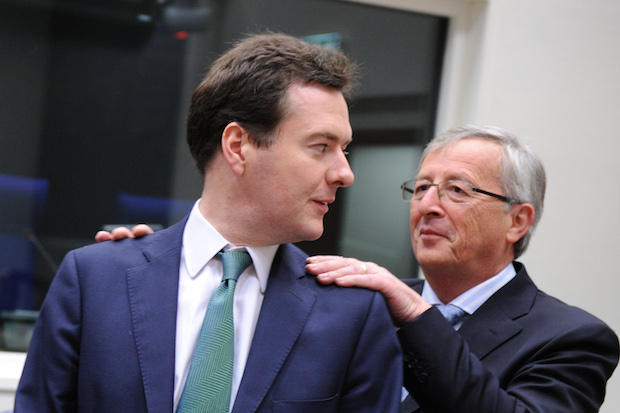A second Tory term would be dominated by the EU renegotiation. Within 18 months of returning to office, David Cameron would have to get the rest of the European Union to agree to new membership terms for Britain and put the results to the public in a referendum. It is a tall order.
But on a trip to Brussels with George Osborne earlier this week, I was struck by how confident he was that a deal could be done. His argument is that the northern European countries, led by Germany, want Britain in as a liberal, free market influence and so will be prepared to accommodate this country’s needs.
Given that Germany is by far the most powerful player in the EU, this is a significant start. But Osborne believes that there is another bloc that would be particularly loath to lose us from the EU: the Eastern Europe and the Baltic state. In this era of Russian revanchism, these countries would not want to see Britain—with its hawkish security stance and, by European standards, considerable military—quit the EU. Indeed, it is striking how the crisis in Ukraine has already brought Britain and Poland far closer together diplomatically.
The question then is how do you persuade the remaining, southern European states to agree to a new deal for Britain. To that, Osborne’s response is that these countries know what an awful message it would send out to the world about the European Union, if Britain decided it had to leave.
The EU renegotiation will not be easy. A deal could easily end up been torpedoed by another EU member for domestic political reasons. But the prospects for the renegotiation do look more promising now than they did after Cameron’s Bloomberg speech.







Comments